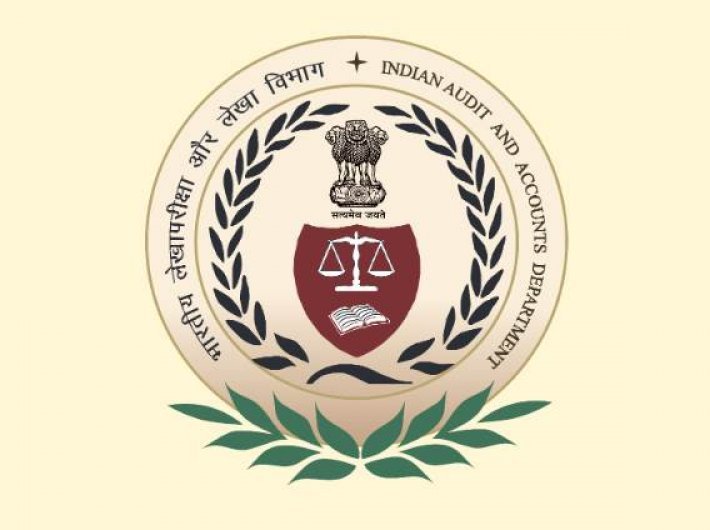Out of nine firms on which orders were placed by Railway Board, seven firms, had complaints pending against them regarding quantity and quality of material supplied, said CAG report
Different variants of bio-toilets were installed in seven trains on a trial basis during January 2011 to April 2012. However, before the test results in respect of these rakes could be analysed, railways decided to undertake large scale proliferation of 10,000 bio-toilets in passenger coaches in November 2011, said a report of the Comptroller and Auditor General (CAG).
The CAG report said that against a target of turning out 100 per cent passenger coaches with bio-toilets, three Production Units in IR turned out 5.7 per cent coaches without bio-toilets in 2016-17. Linke Hofmann Busch (LHB) coaches were also turned out without bio-toilets in 2016-17 to the extent of 6.7 per cent.
It said that the percentage utilistaion of funds allotted for retrofitment of bio-toilets remained between 34 percent and 71 percent during 2014-15 to 2016-17. For the year 2016-17, minister of railways announced a target of induction of 30,000 bio-toilets, of which 20,000 bio-toilets were to be inducted through retrofitment. Railway Board fixed an internal target of induction of 60,000 bio-toilets during 2016-17, of which target for retrofitment was 50,000.
“As against the target of 20,000 bio-toilets and internal target of 50,000 bio-toilets, various Zonal Railways could achieve induction of 22,198 bio-toilets through retrofitment,” said the report that was released on December 19.
Railways operates 13,313 passenger trains with a large fleet of 54,506 coaches (including Diesel Electric Multiple Unit/ Diesel Hydraulic Multiple Unit) carrying 22.21 million passengers daily throughout its network of 1,19,630 track kilometers. The toilet system conventionally used in passenger coaches of IR is flush-type. This involves untreated human waste (night soil) being discharged directly onto the tracks and platform aprons. As a result, there is organic pollution and un-hygienic environment at Stations causing inconvenience to passengers and difficulty in proper maintenance of tracks.
In November 2009, railway board set up a Core Group to decide suitable environment friendly toilets for use in IR by carrying out feasibility studies, techno-economic analysis and drawing up an Action Plan for implementation of environment friendly toilets. The Core Group recommended (January 2010) adoption of the bio-digester technology for development of suitable bio-toilets to be fitted in passenger coaches. The 'bio-digester' is a technology developed by Gwalior-based Defence Research and Development Establishment (DRDE) and Tezpur-based Defence Research Laboratory (DRL) for disposal of human waste in an eco-friendly manner. A ‘bio-toilet’, (using bio-digester technology) is an eco-friendly waste management solution which reduces solid human waste to bio-gas and water with the help of a bacterial inoculum through biological degradation of human waste. It eliminates direct discharge of human waste from coach toilets onto railway tracks and platform aprons in stations; and help avoid manual scavenging while keeping the platform aprons and trains clean.
The CAG report said that in 2016-17, as against a target of 16,800 bio-toilets for retrofitment during periodical overhaul in Carriage Workshops, various Zonal Railways could induct 12,828 bio-toilets. Due to delays in procurement of bio-tanks, biotoilets could not be fitted in coaches as targeted
The concept of Green Train Station and Green Corridors was introduced by railways. In Green Train Stations, all the originating, terminating, bypassing and platform return trains were required to have 100 per cent bio-toilet fitted coaches. The tracks on the Green Corridor were also to be made free from human waste discharge. However, the nominated stations and corridors did not adhere to these conditions.
Due to inadequate progress of retrofitment of bio-toilets in passenger coaches by Zonal Railways, Railway Board decided to place bulk order for supply, installation and commissioning of approximately 80,000 bio-toilets in in-service coaches. “Out of the nine firms on which orders were placed by Railway Board, seven firms, had complaints pending against them regarding quantity and quality of material supplied against Purchase Orders placed by the Zonal Railways during 2015-16 and 2016-17. As against 33,783 bio-toilets which were to be supplied to 16 Zonal Railways up to March 2017, only 14,274 bio-toilets were supplied by the firms. Out of these, 12,016 bio-toilets were fitted in coaches up to March 2017,” said the CAG report.
The report went on to say that adequate storage space for bio-tanks and bacteria inoculum and other infrastructure facilities such as hydraulic/fork lifts, ramps for loading/unloading of bio-tanks, evacuation systems, bio-toilet aprons etc. were not available in most of the selected Carriage Workshops of various Zonal Railways. Inadequate supply/quality of supply of bacteria inoculum was also a constraint and installation/augmentation of bacteria generation facility in SECR, ECoR and ECR needed to be geared up.
Analysis of data on instances of defects/problems such as choking/foul smell, non-availability of dust-bins, and mugs etc. in 15 Zonal Railways in selected 30 Coaching Depots for 2016-17 showed that out of 613 trains being handled in these Coaching Depots, 160 trains did not have any bio-toilets fitted. In remaining 453 trains having 25,080 bio-toilets (either full complement or partial), 1,99,689 instances of deficiencies /complaints were noticed.
There was an increase in cases of choking per bio-toilet in the year 2016-17 as compared to 2015-16. Non-availability of evacuation machines led to difficulties in removing biodegradable waste from the bio-tanks. Annual Maintenance and Operating Contracts were yet to be awarded in 12 Coaching Depots of nine Zonal Railways. Instructions regarding storage and handling of bacteria inoculum and use of cleaning agents were not being followed properly by the Coaching depots, said the report.
Read the CAG report on induction of bio-toilets in passenger coaches in Indian Railways


